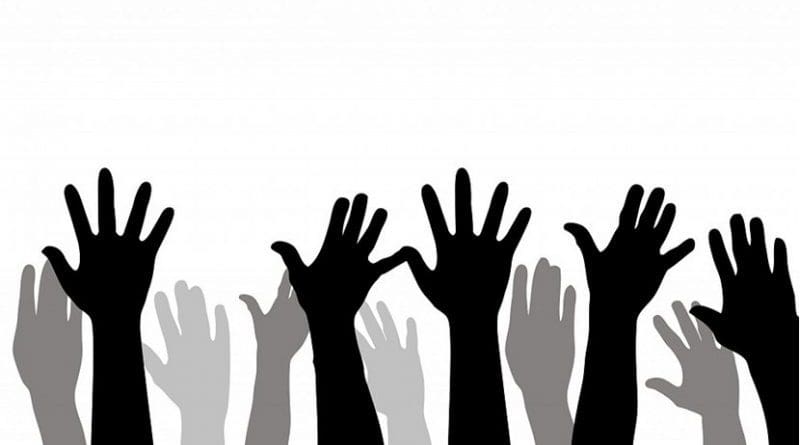On Revolutionary Humanism – OpEd
By Yanis Iqbal
The global scene is deeply disturbing. The wealth of billionaires is increasing even as the starvation-scarred world cries for help; astronomical surges in inequality are pushing an ever greater number of people into a state of pure deprivation; the repressive powers of capitalist states all over the world are being steadily strengthened to silence the growing disquiet in streets and slums; the value of life is plummeting as the poor are wantonly killed for demanding what is theirs; and innumerable people are being sacrificed for the continued existence of a thoroughly decadent, greedy elite. The question is: what to do when millstones of money keep crushing the wheat of humanity into powders of profit?
Contemporary conditions may lead individuals to passively resign to pessimism. However, what is least needed in an extremely oppressive conjuncture is the dominance of hopelessness among the subjugated class. As depressing as the situation is, the obstacles it contains are not insurmountable. Even amid the murderously tightening grip of imperialism, Che Guevara could declare: “Be realistic, demand the impossible!” Wherefrom does this revolutionary orientation come from? It derives from the politico-ethical schema of revolutionary humanism, which upholds the infinite capacity of the wretched of the earth to collectively strive for a better future. A possible plan of action for the overthrow of existing conditions of exploitation may be found in this ideological outlook.
Revolutionary humanism – practiced most prominently by Che – avers that human nature – instead of being fixed – is shaped by specific historical conditions. Thus, the present-day subjective structures of pettiness and selfishness are not innate properties of humans; they are the results of a process of socio-structural construction embedded in a capitalist architecture of accumulation. Since human attitudes are rooted in materiality, it is perfectly possible to create a human radically different from the neoliberal subject. This human – as envisioned by Che – has an orientation toward radical egalitarianism, exhibits a powerful sense of social duty, and a love of work for its own sake. In other words, the new human being of the socialist society transcends the divisions effected by bourgeois society between private and public, particularand general interests, the individualand the community.
Humans as a conscious factor in the trajectory of their totalities; humans transforming nature and society in accordance with a carefully and rationally worked-out plan; humans who have ceased to be a slave, whether submissive or desperate, in order to become the absolute master of their creative powers: these are the communist people, who bring their will into what had seemed inaccessible to them. By socializing the instruments of production and breaking down the barriers that stood in the way of the free development of social forces, the proletariat, for the first time in the world, enters the arena of history in full awareness of what it wants and what it is doing.
Insofar that the proletariat gains a consciousness which encompasses its entire social being, its ethical horizon is widened – humanity becomes the universal value, the concrete field of action which dialectically integrates and transcends the individual and the nation as incomplete moments, and which is identified, in the last instance, with the world proletariat. It is in this sense that Che spoke of love for people, love for mankind, sentiments of solidarity and sensitive generosity without which “it is impossible to think of an authentic revolutionary,” and the crux of which is unambiguously articulated in his short but expressive formulation for all communists: always to feel as one’s own the great problems of humanity.
At the present juncture of history where the people are facing the path of rat race filled with yuppies brainwashed by the neoliberal incentive of individual aggrandizement, Che’s moral incentive of building an alternative world of equality and empathy should strike a chord. What is needed today is a liberatory project of disalienation which puts the quest for humanization and a comprehensive moral transformation at the center of its political strategy. The fight against misery has to be combined with the fight against alienation; the struggle for economic socialism has to be combined with the struggle for a communist morality.
Rosa Luxemburg once said: “socialism in life demands a complete spiritual transformation in the masses degraded by centuries of bourgeois class rule…one cannot realize socialism with lazy, frivolous, egoistic, thoughtless, and indifferent human beings. A socialist society needs human beings who…are full of passion and enthusiasm for the general well-being, full of self-sacrifice and sympathy for their fellow human beings.” Sustained campaigns of hegemony-formation in support of such a new human being are direly needed.

